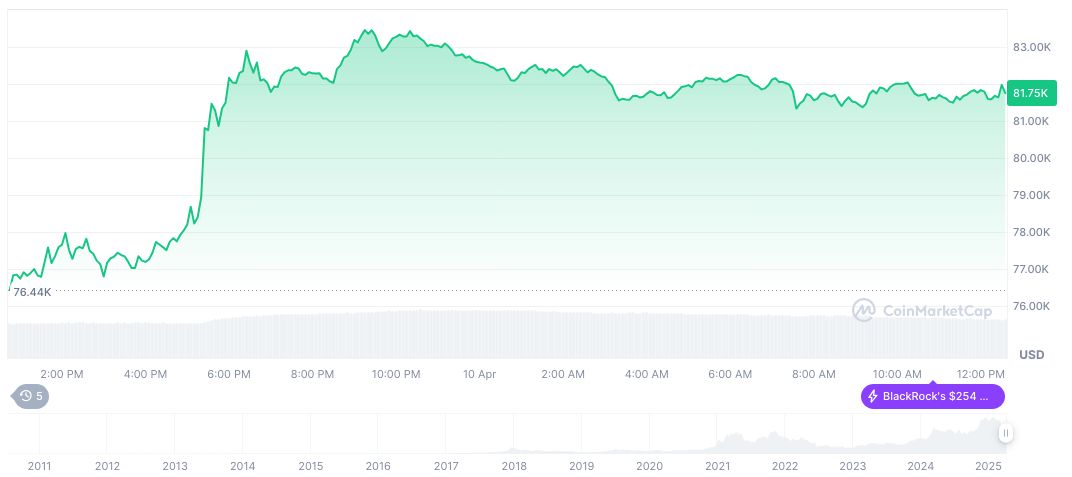- U.S. House advances Trump’s tax cuts and debt ceiling hike plan.
- Plan includes $5.3 trillion tax cuts over ten years.
- Market reacts cautiously amid fiscal equity concerns.
The U.S. House of Representatives has advanced a plan to extend Trump’s tax cuts and raise the debt ceiling.
Immediate market impacts are noticeable, addressing broader implications for U.S. fiscal policy.
Trump’s $5.3 Trillion Tax Cuts and Debt Hike
President Donald Trump and House Speaker Mike Johnson spearhead efforts to advance $5.3 trillion in tax cuts over the next decade, alongside a substantial $5 trillion debt ceiling increase. Congressional Republicans aim to extend the 2017 tax legislation, introducing fresh cuts while targeting $4 billion in spending reductions.
Economic growth is the asserted outcome of this initiative, though market reactions have been mixed. “It is IMPERATIVE that Republicans in the House pass the Tax Cut Bill, NOW! Our Country Will Boom!!!,” stated Donald Trump, Former President of the United States. Some stakeholders express concern over proposed cuts to Medicaid and other social programs, suggesting potential fiscal strain and questioning the equity of these adjustments.
U.S. stocks displayed varied responses to these plans. Initial reactions were positive due to Trump’s suspension of proposed tariffs, hinting at potential economic relief. House Speaker Mike Johnson expressed confidence in the successful passage of the accompanying budget resolution, reinforcing commitment from congressional Republicans.
Bitcoin Markets and Regulatory Impact
Did you know? The 2017 Tax Cuts and Jobs Act previously laid groundwork for significant fiscal policy shifts, leading to impactful economic changes that the current developments aim to replicate.
Bitcoin (BTC) stands at a current price of $80,735.39 with a market cap of roughly $1.60 trillion, according to CoinMarketCap. With a notable market dominance of 62.43%, BTC’s price has experienced declines over the past 24 hours and continues to show variability over longer periods.

Insights by the Coincu research team suggest these fiscal initiatives could influence regulatory landscapes, impacting market liquidity and innovation. Analysts predict ongoing scrutiny from regulatory bodies, potentially shaping digital asset markets moving forward.























